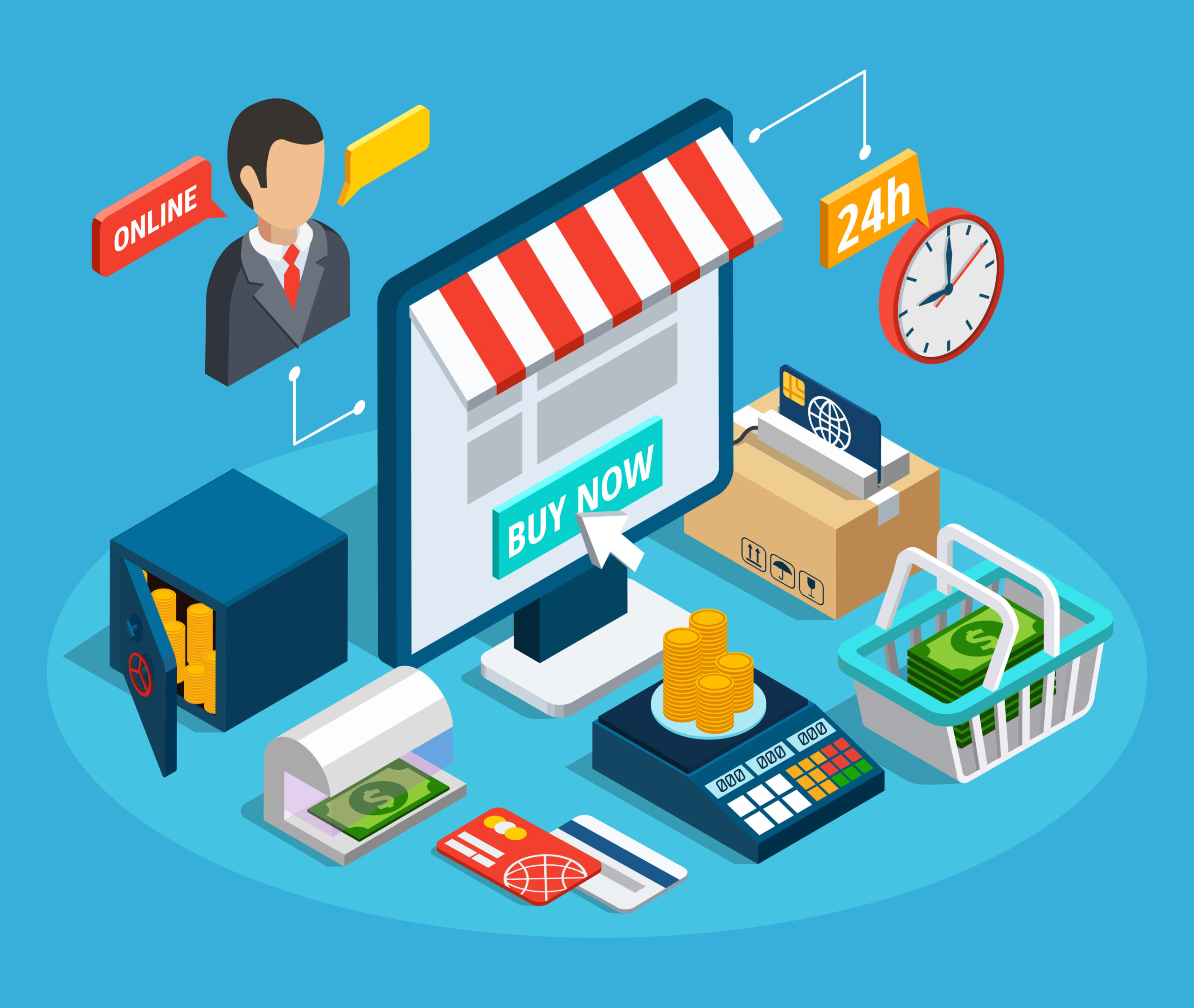
Get Started with E-commerce: Make Money Online Tips
In today’s digital age, making money online has become a viable and lucrative option for many people. Among the various ways to earn money online, e-commerce stands out as one of the most popular and accessible methods. Get Started with E-commerce will take you through the basics of starting your e-commerce journey, offering practical advice and tips to help you succeed.
What is E-commerce?
E-commerce, or electronic commerce, refers to the buying and selling of goods and services over the internet. This can include everything from physical products like clothing and electronics to digital products such as e-books and online courses. The e-commerce market has grown exponentially over the past decade, making it an attractive option for aspiring entrepreneurs.
Why Choose E-commerce?
There are several reasons why e-commerce is a great choice for making money online:
- Low Startup Costs: Unlike traditional brick-and-mortar stores, e-commerce businesses typically require less capital to get started. You don’t need to rent a physical space or invest in large amounts of inventory upfront.
- Global Reach: With an online store, you can reach customers from all over the world, expanding your market far beyond your local area.
- Flexible Working Hours: E-commerce allows you to run your business from anywhere with an internet connection, giving you the freedom to set your own schedule.
- Scalability: It’s easier to scale an e-commerce business as it grows, adding more products and services without significant additional costs.
Choosing Your E-commerce Niche
Selecting the right niche is crucial for the success of your e-commerce business. A niche is a specific segment of the market that you target with your products or services. Here are some tips for choosing a profitable niche:
- Identify Your Interests and Passions: Starting a business in a field you are passionate about can make the process more enjoyable and sustainable in the long run.
- Research Market Demand: Use tools like Google Trends, keyword research, and market research reports to identify niches with high demand and low competition.
- Consider Profitability: Evaluate the potential profit margins of products in your chosen niche. Some niches may have high demand but low profit margins, so it’s important to find a balance.
- Analyze Competitors: Study successful e-commerce businesses in your niche to understand what they are doing right and identify any gaps in the market you can fill.
Setting Up
Once you have chosen your niche, the next step is to set up your e-commerce store. Here are the key steps involved:
- Choose an E-commerce Platform: There are several e-commerce platforms available, each with its own features and pricing plans. Popular options include Shopify, WooCommerce, and BigCommerce. Choose a platform that suits your needs and budget.
- Register a Domain Name: Your domain name is your online address. Choose a name that is easy to remember, relevant to your business, and reflects your brand identity.
- Design Your Store: Most e-commerce platforms offer customizable templates that you can use to design your store. Focus on creating a user-friendly and visually appealing website that provides a great shopping experience for your customers.
- Add Products: Upload high-quality images and detailed descriptions of your products. Make sure to categorize them properly to make it easy for customers to find what they are looking for.
- Set Up Payment and Shipping Options: Integrate payment gateways like PayPal, Stripe, or credit card processors to allow customers to pay for their purchases securely. Also, decide on your shipping methods and policies.
Sourcing Products for Your E-commerce Store
Deciding where to source your products is a critical aspect of running a successful e-commerce business. Here are some common sourcing methods:
- Dropshipping: With dropshipping, you don’t need to keep inventory. Instead, you partner with suppliers who handle inventory and shipping for you. When a customer places an order, the supplier ships the product directly to them. This method has low startup costs but can have lower profit margins.
- Wholesale and Bulk Purchasing: Buying products in bulk from wholesalers can reduce your costs and increase your profit margins. However, this method requires you to manage inventory and handle shipping.
- Manufacturing: If you have a unique product idea, you can work with manufacturers to produce your products. This allows for higher profit margins and brand differentiation but requires a larger upfront investment.
- Handmade or Custom Products: If you create your own products, you can sell them directly through your e-commerce store. This approach offers high control over quality and branding but can be time-consuming.
Marketing Store
Effective marketing is essential for driving traffic to your e-commerce store and converting visitors into customers. Here are some marketing strategies to consider:
- Search Engine Optimization (SEO): Optimize your website and product pages for search engines to improve your visibility in search results. Use relevant keywords, create high-quality content, and build backlinks to boost your SEO efforts.
- Social Media Marketing: Utilize platforms like Facebook, Instagram, and Pinterest to promote your products and engage with your audience. Create compelling content, run targeted ads, and leverage influencer partnerships to increase your reach.
- Email Marketing: Build an email list of potential and existing customers and send them regular newsletters, promotions, and updates. Email marketing is a powerful tool for nurturing customer relationships and driving repeat sales.
- Pay-Per-Click (PPC) Advertising: Run paid ads on search engines and social media platforms to drive targeted traffic to your store. Monitor your campaigns and optimize them for better performance and ROI.
- Content Marketing: Create valuable content related to your niche, such as blog posts, videos, and tutorials. This can help attract and engage your audience, establish your authority in the market, and drive organic traffic to your store.
Managing Business
Running an e-commerce business involves various tasks and responsibilities. Here are some tips for managing your store effectively:
- Customer Service: Provide excellent customer service to build trust and loyalty. Respond promptly to customer inquiries, address complaints, and go the extra mile to ensure customer satisfaction.
- Inventory Management: Keep track of your inventory levels to avoid stockouts or overstocking. Use inventory management software to streamline the process and reduce human errors.
- Order Fulfillment: Ensure that orders are processed and shipped promptly. Choose reliable shipping partners and provide tracking information to customers.
- Analytics and Reporting: Monitor your store’s performance using analytics tools. Track key metrics such as traffic, conversion rate, average order value, and customer retention to identify areas for improvement.
- Continuous Improvement: Regularly update and improve your store based on customer feedback and market trends. Experiment with new products, marketing strategies, and website features to stay competitive.
Common Challenges in E-commerce
While e-commerce offers many opportunities, it also comes with its own set of challenges. Here are some common issues you might encounter and how to address them:
- Competition: The e-commerce market is highly competitive. To stand out, focus on offering unique products, exceptional customer service, and effective marketing strategies.
- Shipping and Fulfillment: Managing shipping and fulfillment can be complex, especially if you are dealing with multiple suppliers or shipping internationally. Use reliable logistics partners and streamline your fulfillment processes to minimize delays and errors.
- Website Security: Protecting your website and customer data is crucial. Use secure payment gateways, SSL certificates, and regular security audits to safeguard your store.
- Customer Trust: Building trust with online shoppers can be challenging. Use social proof, such as customer reviews and testimonials, and provide clear return policies and contact information to build credibility.
- Technology Issues: Technical problems with your website can disrupt your business. Choose a reliable e-commerce platform, keep your software updated, and have a plan in place to handle technical issues promptly.
You can read : How to Make Money Online with Zero Investment
Conclusion
Starting an e-commerce business is a rewarding journey that offers the potential for significant financial and personal growth. By choosing the right niche, setting up a professional online store, sourcing quality products, and implementing effective marketing strategies, you can build a successful e-commerce business. While there will be challenges along the way, staying focused, continuously learning, and adapting to market changes will help you achieve long-term success. With dedication and effort, you can turn your e-commerce dreams into reality and make money online.







Leave a Reply